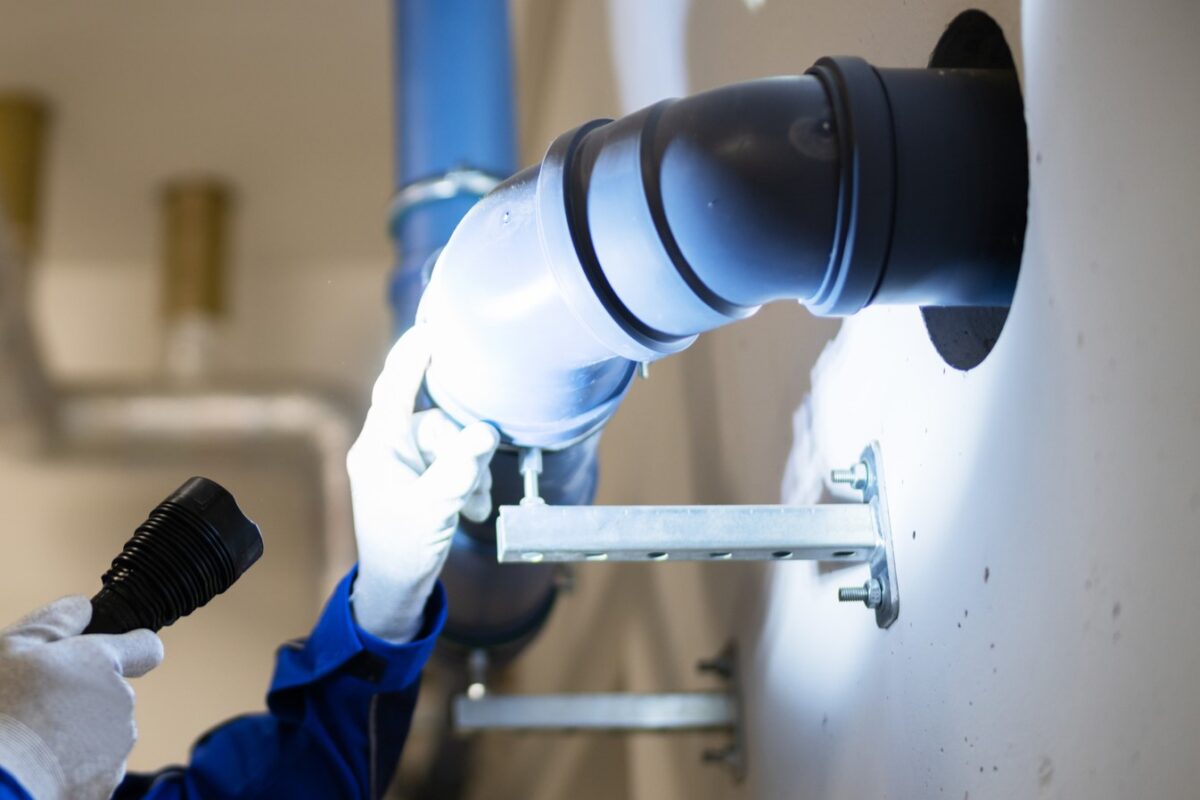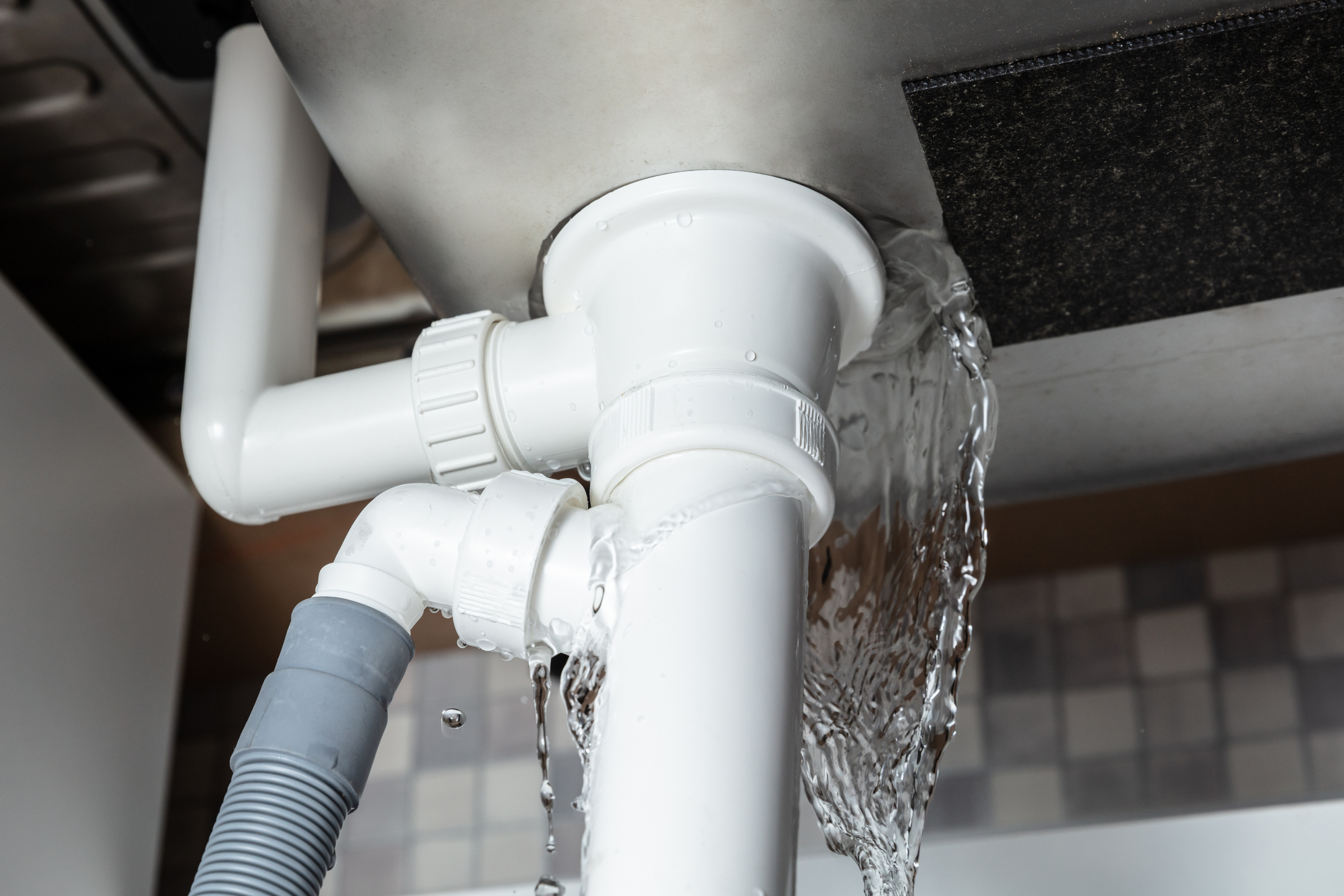6 Reasons to Check Your Pipes Now

Pipes – Have you ever wondered why regular pipe inspections are such a big deal? Whether you live in Cincinnati, Norwood, or Finneytown, OH, keeping an eye on your plumbing can save you from unexpected disasters.
From preventing costly water damage to ensuring safe drinking water, regular inspections are a homeowner’s best friend. Let’s explore why pipe maintenance is so important and how it benefits you.
Importance of Regular Pipe Inspections
Why Regular Maintenance Matters
Regular maintenance can help you avoid such surprises. By keeping an eye on your plumbing, you can catch small issues before they become big problems. This isn’t just about fixing leaks; it’s about ensuring your entire system is in good shape.
Potential Risks of Neglecting Inspections
Neglecting your plumbing system can lead to some serious problems. Here are a few risks:
- Water Damage: Leaky fixtures can cause major water damage to your home.
- Health Hazards: Old, corroded plumbing can contaminate your water supply.
- Costly Repairs: Ignoring small issues can result in expensive emergency repairs.
Regular inspections can help you avoid these risks and keep your home safe and sound.
Reason 1: Preventing Costly Water Damage
Spotting water damage early can save you a lot of money and stress. Common signs of water damage in your home include stains on walls or ceilings, mold or mildew, musty odors, and peeling paint or wallpaper.
Regular pipe inspections help catch leaks and other issues before they become major problems. Here’s why inspections can save you money:
- Early Detection: Finding a small leak early can prevent it from causing extensive water damage.
- Preventing Mold Growth: Addressing moisture issues promptly can save you from costly mold remediation.
- Avoiding Structural Damage: Water can weaken your home’s structure over time. Regular inspections help keep your foundation and walls strong.
- Lower Repair Costs: Fixing a minor pipe issue is much cheaper than dealing with major water damage repairs.
By staying proactive with pipe inspections, you can keep your home dry, safe, and free from costly repairs. Don’t wait for a small problem to become a big one. Regular checks can make all the difference.
Reason 2:Ensuring Safe Drinking Water
Over time, pipes can degrade and become a source of contamination. This can lead to issues like lead, rust, bacteria, and chemicals in your water.
Regular inspections and maintenance of your pipes ensure that your drinking water remains clean and healthy. Here’s how clean pipes benefit your health:
- Safe Drinking Water: Clean pipes provide water that is free from harmful contaminants, ensuring it’s safe to drink.
- Better Taste and Smell: Properly maintained pipes prevent rust and other impurities from affecting the taste and smell of your water.
- Reduced Health Risks: By avoiding contaminants like lead and bacteria, you reduce the risk of health issues for your family.
- Peace of Mind: Knowing your water supply is clean and safe gives you one less thing to worry about.
Ensuring your pipes are clean and well-maintained brings several health benefits. Regular inspections help you avoid issues that can affect your drinking water, making it safe and pleasant for you and your family.
Reason 3: Increasing the Longevity of Your Plumbing System
Regular pipe inspections are like health check-ups for your plumbing system. They help identify problems such as leaks, corrosion, and blockages early, allowing for timely repairs and preventative maintenance. Here’s how they extend the lifespan of your pipes:
- Early Detection of Issues: Inspections help spot problems before they become big and expensive to fix.
- Preventative Maintenance: Regular maintenance keeps pipes clean and free of buildup that can cause wear and tear over time.
- Optimal Water Pressure: Maintaining the correct water pressure prevents stress on pipes, reducing the risk of bursts and leaks.
- Professional Cleaning: Inspections often include professional cleaning, which removes mineral deposits and other debris that can damage pipes.
Extending the lifespan of your plumbing system results in fewer replacements, lower repair costs, energy savings, and increased property value. Investing in regular inspections ensures your plumbing system remains durable and efficient, providing long-term benefits and peace of mind.
Reason 4: Avoiding Emergency Repairs
When a plumbing emergency strikes, it can disrupt your daily life and cause significant stress. Common issues include burst pipes, clogged drains, water heater failures, and toilet overflows.
Regular inspections allow you to identify and address potential problems before they escalate, helping you avoid the stress and expense of emergency plumbing repairs. Here’s how regular inspections help:
- Spotting Leaks Early: Small leaks can be fixed easily and cheaply before they turn into major floods.
- Clearing Minor Blockages: Routine cleaning and maintenance prevent minor clogs from becoming severe blockages.
- Checking Water Pressure: Ensuring your water pressure is at the right level prevents stress on pipes and reduces the risk of bursts.
- Inspecting Appliances: Regularly checking appliances like water heaters and washing machines ensure they function properly and don’t cause unexpected issues.
By staying proactive with pipe inspections, you can avoid the stress and expense of emergency plumbing repairs, keeping your home running smoothly.
Reason 5: Enhancing Home Value
Good plumbing is a key selling point for any home. It increases buyer confidence, reduces inspection issues, and serves as an attractive selling point. Well-maintained plumbing systems often receive higher appraisals and make the home more appealing to buyers. Here’s how good plumbing enhances your property’s value:
- Increases Buyer Confidence: Buyers feel more secure purchasing a home with a well-maintained plumbing system, knowing they won’t have to deal with immediate repairs.
- Reduces Inspection Issues: A home with up-to-date plumbing is less likely to encounter problems during a pre-sale inspection, speeding up the sales process.
- Attractive Selling Point: Highlighting your regular maintenance efforts shows buyers that the home has been well-cared for, making it more attractive.
- Higher Appraisal Value: Homes with updated plumbing systems often receive higher appraisals, reflecting their increased value.
Modern buyers also prefer homes with energy-efficient systems, reliability, advanced features, and low maintenance. Investing in regular pipe inspections and maintenance not only keeps your plumbing in top shape but also enhances your home’s overall value, making it a smart move for any homeowner.
Reason 6: Preventing High Water Bills
Leaks and inefficient plumbing systems can lead to high water bills, wasting both water and money. Regular pipe inspections help you identify and fix these issues, ensuring your plumbing system runs efficiently. Here’s how regular inspections can save you money on your water bill:
- Detecting Leaks Early: Even a small leak can waste a significant amount of water over time. Early detection allows for quick repairs, reducing water wastage.
- Fixing Inefficient Fixtures: Inspections can identify old or inefficient fixtures that may be using more water than necessary, allowing you to replace them with water-saving alternatives.
- Maintaining Optimal Water Pressure: Ensuring your water pressure is set correctly prevents excessive water flow, saving water and reducing strain on your plumbing system.
- Preventing Running Toilets: A running toilet can waste gallons of water each day. Regular checks ensure toilets are functioning properly and not wasting water.
By staying on top of your plumbing maintenance, you can avoid unexpectedly high water bills. Simple fixes can lead to significant savings, making regular pipe inspections a smart investment for any homeowner looking to reduce their water expenses.

Photo from iStock – Credit: Zerbor
How to Inspect Your Plumbing System
Tools You’ll Need
Before you start, gather these essential tools:
- Flashlight: To see into dark or hard-to-reach areas.
- Wrench: For tightening or loosening fittings.
- Plumber’s Tape: Useful for sealing connections.
- Bucket and Towels: In case of leaks or spills.
What to Look For During an Inspection
When inspecting your plumbing system, pay attention to these key areas:
- Leaks: Check for water stains, puddles, or drips around faucets, fixtures, and appliances.
- Corrosion: Look for rust or green discoloration on metal parts, which can indicate wear and tear.
- Water Pressure: Test the water pressure at different faucets. Low pressure can signal blockages or other issues.
- Drainage: Ensure that sinks, tubs, and toilets drain quickly and efficiently. Slow drainage can indicate clogs.
Regular inspections help you catch small issues early, preventing costly repairs and maintaining your home’s plumbing system in good working order.
When to Call a Professional Plumber
Signs That Require Expert Attention
Certain signs indicate that it’s time to call a professional. Persistent leaks that don’t stop even after tightening connections should be addressed by an expert.
If you notice water discoloration, which could indicate rust or contamination, a professional inspection is necessary.
Strange noises like banging or gurgling from your pipes or fixtures often point to underlying issues that require specialized equipment to diagnose and fix.
Additionally, if you experience consistently low water pressure throughout your home, it may indicate a more serious problem in your plumbing system.
Finding a Reliable Plumber
Choosing the right plumber is crucial for resolving your issues efficiently. Start by asking friends or family for recommendations, as personal referrals often lead to trusted professionals.
Check online reviews to see what other customers have experienced with local plumbers.
Ensure the plumber is licensed and insured to protect yourself from potential liabilities. Finally, get multiple quotes to compare prices and services before making your decision.

Photo from iStock – Credit: AndreyPopov
Common Issues Found During Pipe Inspections
Corrosion and Rust
Corrosion and rust are frequent issues, especially in older systems. They can lead to weakened connections and potential leaks.
Over time, corrosion can significantly damage the integrity of your plumbing system, causing it to fail. Regular inspections can catch these signs early, allowing for timely repairs or replacements.
Leaks and Cracks
Leaks and cracks are among the most obvious problems detected during inspections. These issues can stem from various sources, such as worn-out seals, damaged joints, or freezing temperatures causing expansion and contraction.
Early detection is crucial as even a small leak can lead to substantial water damage if left unchecked.
Clogs and Blockages
Clogs and blockages are common, particularly in households with a lot of debris going down the drains.
Over time, the build-up of materials like hair, grease, and soap scum can lead to significant blockages. These blockages can cause slow drainage and, in severe cases, complete stoppages, requiring professional cleaning.
Tree Root Intrusion
Tree root intrusion is a common issue, particularly for homes with older pipes. Roots can grow into the pipes through small cracks or joints in search of water, causing significant blockages and even breaking the pipes over time.
Regular inspections can spot the early signs of tree root intrusion, allowing for prompt removal of the roots and repairs to the affected pipes. This prevents severe damage and maintains the proper functioning of your plumbing system.
Tips for Maintaining Your Plumbing System Between Inspections
Simple Maintenance Tasks for Homeowners
Taking a few easy steps can significantly extend the life of your plumbing system:
- Check for Leaks: Regularly look under sinks and around appliances like dishwashers and washing machines. Even small drips can lead to bigger issues if left unchecked.
- Clean Out Drains Monthly: Use a mixture of baking soda and vinegar to break down grease and other debris to prevent buildup.
- Monitor Water Pressure: High water pressure can stress your plumbing system, leading to leaks and bursts. Use a water pressure gauge to ensure it stays within a safe range.
- Be Mindful of What You Flush and Rinse: Avoid flushing items like wipes or pouring grease down the drain, as these can cause significant blockages.
Products That Can Help
Several products can help maintain your plumbing system:
- Drain Strainers: These are useful for catching hair and food particles before they cause clogs.
- Water Softeners: These reduce the buildup of minerals like calcium and magnesium, which can lead to blockages and reduce the efficiency of your system.
- Leak Detectors: These devices can alert you to leaks early, helping you avoid water damage.
- Insulation: Insulating your plumbing system is essential for preventing freezing during the winter months.
By incorporating these simple maintenance tasks and using helpful products, you can keep your plumbing system in top shape between inspections, ensuring it remains efficient and reliable.
Benefits of Regular Pipe Inspections for Homeowners
Long-term Financial Savings
One of the most compelling reasons to schedule regular inspections is the financial savings. Early detection of small issues, such as minor leaks or corrosion, allows you to address them before they become major, costly repairs.
By catching problems early, you avoid the expense of extensive damage and the need for emergency plumbing services. Additionally, maintaining your plumbing system can lead to lower water bills, as there is less water waste from leaks or inefficient systems.
Peace of Mind and Safety
Regular inspections provide peace of mind, knowing your home’s plumbing system is in good working order.
This assurance reduces the stress and anxiety associated with unexpected plumbing emergencies. Inspections also contribute to the safety of your home by preventing water damage that can lead to structural issues, mold growth, and other health hazards.
Knowing that your plumbing system is well-maintained and free of potential hazards allows you to focus on other aspects of homeownership with confidence.
Keep Your Plumbing in Top Shape with Halpin Plumbing!
Don’t wait for a plumbing disaster! If you’re in Cincinnati, Norwood, or Finneytown, trust Halpin Plumbing for all your maintenance and inspection needs. Our expert team ensures your system runs smoothly year-round.
Call us today for a professional inspection and keep your home safe and efficient. Prevent costly repairs and enjoy peace of mind with Halpin Plumbing!
FAQs
How often should I inspect my pipes?
It’s recommended to inspect your plumbing system at least once a year. However, if you live in an older home or have experienced plumbing issues in the past, more frequent inspections may be necessary.
What are the signs of pipe deterioration?
Signs of deterioration include rust or discoloration, frequent leaks, reduced water pressure, and strange noises like banging or gurgling. Additionally, you might notice water discoloration or a metallic taste in your tap water.
Can I inspect my pipes myself, or should I hire a professional?
While you can perform basic inspections yourself, such as checking for visible leaks and ensuring proper drainage, hiring a professional plumber for a thorough inspection is advisable. Professionals have the tools and expertise to identify and address issues that may not be apparent to the untrained eye.
What are the most common materials for household pipes?
Common materials include copper, PVC (polyvinyl chloride), PEX (cross-linked polyethylene), and galvanized steel. Each material has its own benefits and drawbacks in terms of durability, cost, and ease of installation.
How do I know if my pipes need to be replaced?
Indicators that your plumbing system may need replacing include persistent leaks, visible corrosion, frequent clogs, and outdated materials like galvanized steel. A professional inspection can provide a detailed assessment and recommend whether repair or replacement is necessary.